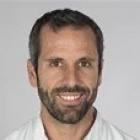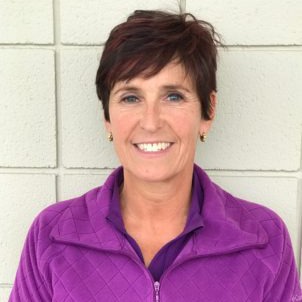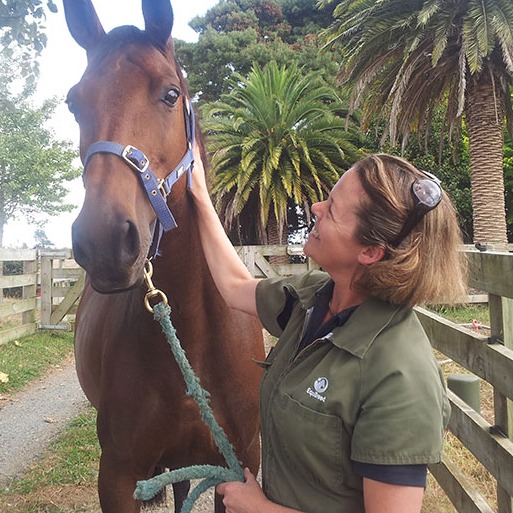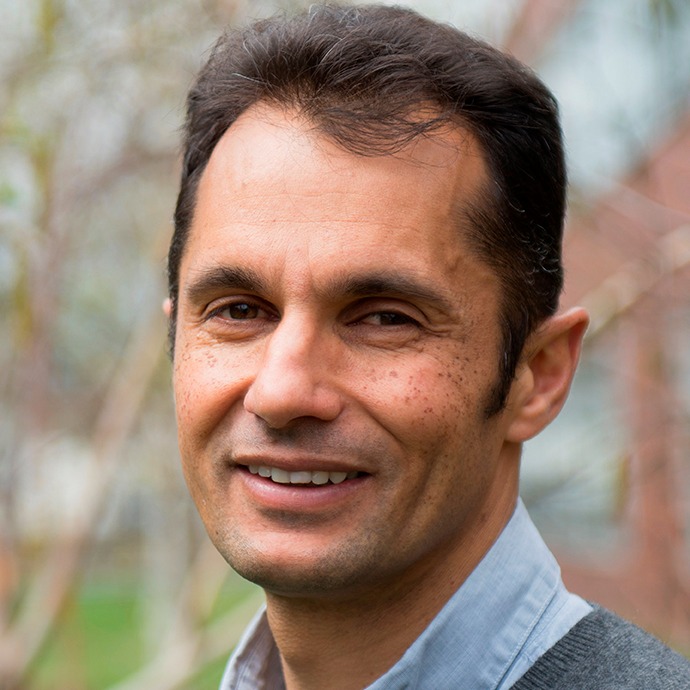Ovulation Induction, Failure & Timing of AI
Species
Equine
Contact Hours
3 Hours
Early Booking Deadline
Thu, 01 January, 1970
Registration Deadline
Thu, 01 January, 1970
Language
English
Discipline
Reproduction / Theriogenology
Industry Partners
Global

Veterinary Partners
Global


Recorded on: 11th May 2021
Panelists:
Juan Cuervo-Arango Lecina PhD, MSc, CertVRep, DECAR(Equine) - Broline AB international, Sweden
Lee Morris BVSC, DVSC, DIPACT - EquiBreed NZ Ltd., New Zealand
Karen Wolfsdorf DVM, DACT - McGee Fertility Center, United States
Moderator:
Tom Stout VetMB, MA, PhD, DECAR, KNMvD - Utrecht University, The Netherlands
CONTENT DESCRIPTION
The key to success in equine artificial insemination is accurately predicting the time of ovulation, so that semen can be introduced into the uterus at the optimum time relative to the oocyte entering the oviduct. While follicle size, appearance and softness, and changes in the intensity of uterine oedema or teasing behavior, can all help in estimating when ovulation is likely to occur, there is no single parameter, or combination of parameters, that guarantees success. Instead, it is common practice to induce ovulation using either hCG or a GnRH analog assuming that ovulation will take place within 48 h; even then, not all mares respond as they should. To make matters worse, some mares / follicles will fail to ovulate at all...
This workshop brings together 3 world-renowned equine reproduction practitioners from 3 different continents with a wealth of experience on how to best spot the mares, follicles or situations that are likely to prove challenging, and how to best approach ovulation predictions and induction to minimize the risk of a nasty surprises. This exchange will be moderated by one of the world’s top equine reproduction specialist and researcher.
.
Juan graduated in Veterinary Medicine in Murcia (Spain) in 2003, and did his MSc in Equine Science in the University of Edinburgh (Scotland) in 2006. He completed his Residency in Large Animals Theriogenology in the Royal Veterinary College (University of London, 2008) under the co-supervision of Prof. John R. Newcombe, and became a Diplomate of the European College of Animal Reproduction (Dipl. ECAR, Equine) in 2009. Finalized his PhD in 2010 in the University of Helsinki supervised by Prof. Terttu Katila. Juan worked as Assistant Professor in Equine Reproduction at the Faculty of Veterinary Medicine, Universidad UCH-CEU in Valencia, Spain (2010 to 2016) and in the Veterinary School of Utrecht University, The Netherlands from 2016 to 2019. During his time in academia, he completed several research placements in different laboratories over the world working with Prof. Terttu Katila (Helsinki, Finland), Prof. O.J. Ginther (Wisconsin, USA) and Prof. Luis Losinno and Javier Aguilar (Rio Cuarto, Argentina). For the last two years he has been working as stud veterinarian during the breeding seasons of Australia and Europe. Currently he is working in a busy Standardbred stud farm in Sweden. His research and clinical interests are breeding management of mares, anovulatory disorders, induction of ovulation, ultrasonography of the corpus luteum, embryo transfer and ovum pick-up in mares, amongst others. He has published over 50 articles on equine reproduction in international indexed JCR journals and lectured in numerous international congresses on equine reproduction over the world.
Dr. Karen Wolfsdorf attended veterinary school at the University of Florida and graduated in 1992. After completion of her DVM, she began an equine field service internship at North Carolina State University. In 1995, Dr. Wolfsdorf completed a residency in Theriogenology at the University of Florida and became board certified in Theriogenology. Before coming to Hagyard Equine Medical Institute, she spent time working in Australia with Dr. Pascoe at Oakey Veterinary Hospital. In 1996, Dr. Wolfsdorf joined Hagyard as an Associate and in 2002 she became one of the first two woman Members of the Practice. Dr. Wolfsdorf’s main area of interest is infertility in the mare and problems during pregnancy. She spends her time working as a field veterinarian and as a specialist at the McGee Fertility Center.
She has authored many chapters on equine reproduction as well as lectured worldwide and published research regarding progesterone, retained endometrial cups and equine twin reduction with cranio-cervical dislocation.
Dr. Wolfsdorf and her husband are involved as owners and breeders in the Thoroughbred industry and have two daughters who ride pony hunters.
Lee graduated from The University of Sydney in 1992 with a Bachelor of Veterinary Science. After 2 years in rural veterinary practice in northern NSW, Australia she undertook a 3-year residency programme in Theriogenology at the University of Guelph in Canada during which time she also became a Diplomate of the American College of Theriogenologists in 1997, and then graduated with a Doctorate of Veterinary Science in 1998. Her DVSc thesis work encompassed in vitro studies (IVF) on the production of embryos and the assessment of male fertility. From 1998 to 2001 Lee was employed as the Senior Veterinary Research Scientist at the Equine Fertility Unit in Newmarket (UK) where she worked with Professor Twink Allen and developed the hysteroscopic (low dose) insemination procedure for horses. In 2001 Lee was the Senior Registrar at The University of Sydney from where she provided clinical reproductive services for horses and dogs and conducted research into sex-sorted semen. Lee has been in New Zealand since 2002 and is now the Specialist Equine Reproduction veterinarian at EquiBreed NZ Ltd. In 2004, she became a Registered Specialist in Veterinary Reproduction in Australasia. Her special interests include artificial insemination (AI), embryo transfer (ET), epididymal spermatozoa, hysteroscopy, equine laparoscopy, semen freezing technology, sex-sorted semen and challenging cases of mare or stallion infertility. Lee provides referral consultancy services to equine vet clinics in New Zealand and Australia.
In 2004, Lee was elected onto the committee for the International Symposium of Equine Reproduction (ISER) and in 2014 she was the local Chairperson for the ISER XI in 2014 in Hamilton, NZ.
Lee has been an Honorary Associate of The University of Sydney (Australia) and an Honorary Lecturer at The University of Waikato (NZ) in recognition of her contribution to research. She has lectured and provided clinical tuition to veterinary students at The University of Guelph (Canada), Cambridge University (UK), Massey University and The University of Sydney (Australia). She has been the industry supervisor of 4 MSc theses (Waikato University, New Zealand) and 2 PhD theses (The University of Sydney, Australia). Lee has published more than 25 peer-reviewed scientific papers, presented her research internationally and written chapters in the Veterinary Clinics of North America and two textbooks on Equine Reproduction.
Tom qualified from Cambridge University's School of Veterinary Medicine in 1993. He performed his PhD, also at Cambridge, on 'Maternal Recognition of Pregnancy in the Mare' under the supervision of Professor W.R. 'Twink' Allen at the Equine Fertility Unit in Newmarket funded by the Horserace Betting Levy Board. After a short period as Lecturer in Animal Reproduction at Cambridge Tom moved to Utrecht University to become a lecturer in equine reproduction. In 2007, he was appointed to the Chair of Equine Medicine and Reproduction at the Department of Equine Sciences and also to an extraordinary Chair in Reproduction at the University of Pretoria, Department of Production Animal Sciences.
Tom is a Diplomat of the European College of Animal Reproduction (ECAR) and a Royal Dutch Veterinary Association specialist (KNMvD) in Equine Reproduction. He runs a busy clinical discipline working on all aspects of equine reproduction, with increasing emphasis on assisted reproduction and diagnosis and treatment of infertility. Tom's research interests are focussed on fertilisation, early embryonic development and early pregnancy loss in mares and in the relationships between semen quality and fertility in stallions. He is also involved in studies into semen quality and early embryonic development in farm animal and wildlife species and contraceptive techniques for the management of wild animal populations.
Veterinary Student
Online Panel Discussion
USD 35.00
Qualified Vet
Online Panel Discussion
USD 85.00
Intern/Resident (Requires proof of status)
Online Panel Discussion
USD 65.00
Vet Nurse/Vet Tech (Requires proof of status)
Online Panel Discussion
USD 65.00
Breeders & Other Non-Veterinary Professionals
Online Panel Discussion
USD 65.00
If the options you are looking for are unavailable, please contact us.
No tax will be added unless you are a UK taxpayer
Choose currency at checkout


















